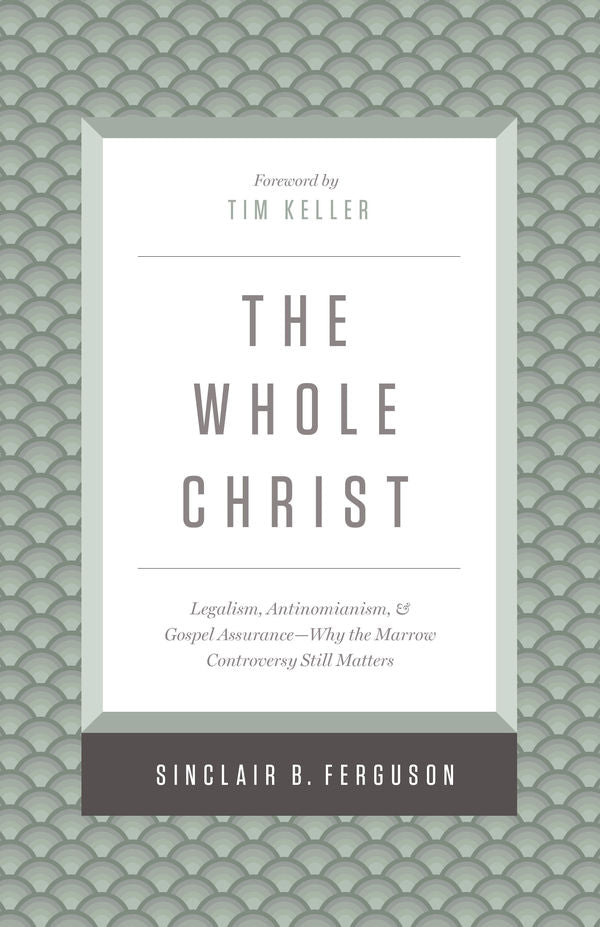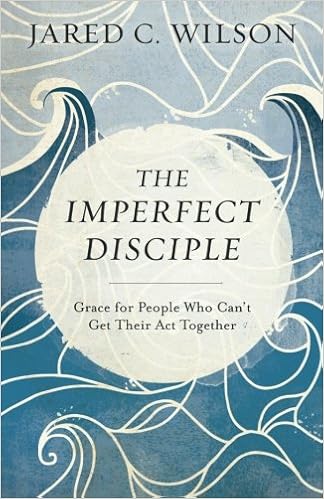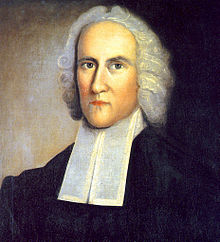Before I begin, I want to commend the use of the Oxford Comma in the PCA Report on Human Sexuality.
As I noted in discussion about the Twelve Statements, I wasn’t exceedingly pleased with the order. I understand some want to just get to the point. My wife reads the end of a novel, and then the rest. If I know the ending I think, “What’s the point?”. I wanted to see the work they went through, at times, to better understand their conclusion.
Some of the issues being discussed in our churches today have to do with understandings of sin and gospel expectations.
They were to examine the differences with Roman Catholic theology on the issue of concupiscence with regard to same-sex attraction. This is the overflow of the Revoice issue. Some of the speakers at Revoice were Catholic. Additionally, some of the debates among pastors centered on the question of when temptation becomes sin. As I noted previously, in those discussion I was thinking of sin as an act or transgression, not as corruption or original sin. But some were speaking of corruption. I suspect there was plenty of talking past one another, and accusing people of having a Roman Catholic view of concupiscence.
 What is surprisingly missing here is interaction with Thomas Boston and his Human Nature and its Four-Fold State. Just saying, since he’s not only a personal favorite but also this is a standard work. But this is a personal thing. He notes that both our corruption and regeneration are total in that they affect the whole of us. They do not mean each has been affected completely.
What is surprisingly missing here is interaction with Thomas Boston and his Human Nature and its Four-Fold State. Just saying, since he’s not only a personal favorite but also this is a standard work. But this is a personal thing. He notes that both our corruption and regeneration are total in that they affect the whole of us. They do not mean each has been affected completely.
The Report notes the Confessional distinction between the corruption and the active fruit of that corruption. This is part of why I try to maintain this distinction. However, those who speak of our corruption with regard to same-sex attraction seemed not to affirm it with regard to heterosexual lust.
I wish their distinction between original and actual had been more explicit in the Statements.
As a technical theological term, “actual”sin refers not to the reality or non-reality of sin, but to its being an act of the soul as opposed to a disposition or inclination only.
The summer of the original “debates” I preached on a number of these issues in a special series, taking an overtly redemptive historical approach. Internal temptation flows from our corruption. Internal temptation is sin in the sense of corruption. It is a desire, in this case, for something sinful in itself. It becomes an act when we entertain said temptation, not simply when we act on it.
Luther is noted for saying that you can’t stop a bird from landing on your head, but you can stop him from building a nest there. We can’t control that we experience temptation, but we are responsible for what we do with it. That was my point. This is what they are getting at in the Report.
After regeneration we do continue to be corrupt. This is part of the already/not yet. We are already renewed but not yet perfectly renewed. We still have that original sin or corruption from which our sins actual continue to flow. “The fact that the corruption remains highlights that justification is imputed, not infused.” We are simul justus et peccator as Luther also said. The change in regeneration is total, in that affects our whole person, but it is imperfect. They pull a number of chapters in the Confession in this: Of the Fall of Man, Sin and the Punishment Thereof, Of Sanctification, and Of Free Will. We continue to have disordered desires. At times we will and act good things, but not perfectly and exclusively. Our good works are truly good, yet mixed with our corruption. They bring us to Calvin.
“If the true standard of righteousness is to love God with the whole heart, and mind, and strength, it is clear that the heart cannot incline otherwise without declining from righteousness… The law, I say requires perfect love: we do no yield it. Our duty was to run, and we go on slowly limping.”
Those imperfect stumblings in the way are purified by the work of Christ. He accepts our sincere efforts despite their many weaknesses and imperfections.
They lay plenty of groundwork for our view before getting to the Roman Catholic view and the application to the current issues. They bring us to the Council of Trent. This affirmed there was an incentive to sin, concupiscence, but it was not properly considered sin unless you consented to it. The Report summarizes “the Council says that concupiscence is a result of sin and inclines to sin, but is not sin itself.” They anathemtize us and the Reformers. There seems to be an acknowledgment that the Bible calls it sin, but the Church doesn’t. So we return to one of the main emphases of the Reformation: the nature of authority. Their tradition was not in accordance with the Scriptures and they were okay with that. The Reformers weren’t, and should not have been. When our “tradition” departs from the Scriptures we should submit to the Scriptures. Sin, in Reformed Theology, is always connected to the Law of God.
Rome has a fundamentally flawed view of sin, and as a result salvation. Baptismal regeneration essentially removes corruption in their view. It accomplishes what Pelagius did with original sin. Sin becomes limited to transgression, act/actual in their view. Some of the main speakers at Revoice expressed this and similar views.
There is a danger shift in this away from the imputed righteousness of Christ toward a confidence in our own righteousness. This is why justification follows sanctification in their views. Christ only justifies the sanctified rather than sanctifying the justified. But if sin has been ontologically removed via baptism, then temptation itself has no connection to sin.
“The Reformers, however, stressed the importance of recognizing the ongoing presence of sinful concupiscence in the Christian precisely because it highlighted that the righteousness given is only and completely an imputation of that which is Christ’s.”
The Reformed view rests on the authority of Scripture, not the (ever-changing) authority of the Church. The Reformed view recognizes are on-going need for pardoning, purifying and empowering grace.
The Report than brings us to the “Common Dynamic of Concupiscence.” This is not just about same-sex attraction. It “is not unique to those who experience homosexual desire. All people experience it.” This cannot be downplayed. We all have spontaneous thoughts, of all kinds, that flow out of our corrupt nature. They are sin original and lack conformity to the law of God. The Report rightly warns us about thinking homosexual desire as qualitatively different from our disordered desires. “Or worse, some may be willing to assert the sinfulness of one category of spontaneous desire but minimize or remain largely ignorant of the sinful concupiscence that is common to all.” This doesn’t make homosexuality “less sinful” but reminds us of the actual sinfulness of our own disordered desires. “Good Reformed teaching on sin places us all on equal footing in our need of Christ’s imputed righteousness.” It seemed to me that some forgot that very important point.
Because of continued corruption we should not be surprised if homosexual attraction continues after conversion. Yet, some seem to think it should cease. Careful study of our continuing corruption should lead us to not promise removal such desires even as we encourage on-going sanctification. In this context they address “reparative therapy”. If there is a promise of such freedom, and a corresponding demand for such freedom then “that demand is an anti-gospel that only crushes and condemns- especially if the admonitions are applied selectively to this form of concupiscence but not to other common varieties, both sexual and other.”
I’ve interacted with people who have such a view of repentance that the Report warns against. If only people truly repented they would not experience homosexual desire, it is said. I guess many of us haven’t truly repented of all our sins if we commit them again. This is truly a perversion of the doctrine of repentance. As a result, all such claims or demands must be rejected and resisted. Not by a liberal or anti-confessional basis but precisely on a Confessional and Scriptural basis.
Does this mean we are being soft on same-sex attraction? Are we pandering to their sin? No. The Report then addresses real change. Regeneration is total, affecting the whole person, Boston notes. Sanctification is total as well. There should be progress as the Spirit sanctified the “whole man.” The person experiencing homosexual attraction needs to put it to death. They should seek real change “even if that change is incomplete and mixed.” Strides made are real even if imperfect.
This means we should “Celebrate Sincere Efforts.” While all gospel-change is “incomplete and mixed with corruption” it is still gospel-change. Christ is transforming them even if it is the putting to death of temptation one time this week. We celebrate, not the attraction, but our baby steps in sanctification.
This continues in establishing a moral difference between corruption and transgression. The initial desire/temptation is different morally than the desire or temptation that is turned over in our mind, and then to act on it. In this they use the language of WLC 151.
“The point here is not to encourage those with homosexual attraction to become comfortable with or accepting of it. Rather, it is to counter the undue heaping of shame upon them as if the presence of homosexual attraction itself makes them the most heinous of sinners.”
This has been one of my concerns, the reality of shame. They way some of us speak about homosexuality we just heap shame on people. No wonder they don’t want to talk to some of us about their same-sex attractions. This was my concern when focusing on their corruption but ignoring our own. The idea of repent of their orientation isn’t applied to other people’s sinful inclinations in the same way. We place improper shame on them: not the shame of being a sinner but of being a different & worse sinner than the rest of us.
Despite the fact they didn’t bring Boston into the discussion, there are a number of excellent points made in application of the doctrine we have in common. There are good correctives and clarifications so perhaps we can have more fruitful discourse in the future.
Addendum:
Of course after writing this, I read the chapter in Maturity by Sinclair Ferguson on Overcoming Temptation.
“In biblical teaching temptation as such is not sin.”
 He also notes that “the distinction between temptation and sin is vital theologically and also pastorally.” He’s getting at that moral difference between them. As a “student” of John Owen’s, he’s not ignoring our corruption (he addresses that on the very next page) but focusing on sin as transgression in those statements. There is plenty here to apply pastorally. And Ferguson does just that. “We are conflicted. Christ dwells in us, yet sin remains.”
He also notes that “the distinction between temptation and sin is vital theologically and also pastorally.” He’s getting at that moral difference between them. As a “student” of John Owen’s, he’s not ignoring our corruption (he addresses that on the very next page) but focusing on sin as transgression in those statements. There is plenty here to apply pastorally. And Ferguson does just that. “We are conflicted. Christ dwells in us, yet sin remains.”
He’s writing for the tender-hearted, like I can be, who can be filled with guilt and shame over the existence of temptation in our lives. He offers a general rule of thumb to help such people.
“A rule of thumb that will be helpful if we are prone to confuse being tempted with actually sinning is this: Ask yourself: ‘Do I want this temptation? Do I want what it solicits me to do or have? Or is it distasteful to me?‘”
This is helpful, I believe, for those Christians tempted by homosexual attraction. Many don’t want those temptations that they experience. They wish it were different. They don’t yield to it, but due to indwelling sin still experience it.
“… sensitive Christians must learn not to listen to Satan’s sinister suggestions that by being tempted they have already sinned and are thereby condemned.”
He develops the doctrine of concurrence in this chapter looking at David’s sins in the affair with Bathsheba, as well as Job. This is not simply external temptation, but how Satan piles on when these desires arise from indwelling sin.
Ferguson also quotes the main passage from Owen that defines what he means by “entering into temptation.” This is a sentenced I missed while re-reading Owen for my sermon on the subject in 2018.
” Whilst it knocks at the door we are at liberty; but when any temptation comes in and parleys with the heart, reasons with the mind, entices and allures the affections, be it a longer or shorter time, do it thus insensibly and imperceptibly, or do the soul take notice of it, we ‘enter into temptation’.” (Owen, Works, VI, 97)
Ferguson develops this process from temptation to sin in the life of David, and applies it to us in what I find a helpful way. All in all, it is a very helpful chapter in his book regardless of the nature of our temptations. I heartily recommend it. I heartily recommend Ferguson’s books because I find him to have a pastor’s heart, not simply a theologian’s mind. I continually praise God for his ministry to my life and the model of doing theology in his writings.
 As I try to prepare my thought on the Preamble of the PCA’s Ad Interim Committee Report on Human Sexuality, I want to keep in mind the Forward of
As I try to prepare my thought on the Preamble of the PCA’s Ad Interim Committee Report on Human Sexuality, I want to keep in mind the Forward of  They point us to wisdom from Sinclair Ferguson and his excellent work
They point us to wisdom from Sinclair Ferguson and his excellent work  Earlier this year I read one of David Powlison’s final books:
Earlier this year I read one of David Powlison’s final books:  At the recent RTS alumni and friends lunch at General Assembly, I was given a free copy of Kevin DeYoung’s book
At the recent RTS alumni and friends lunch at General Assembly, I was given a free copy of Kevin DeYoung’s book 

 For years now I’ve been reading a volume in the Crossway series “On the Christian Life” while on vacation. That means I read two a year. This summer I decided to read
For years now I’ve been reading a volume in the Crossway series “On the Christian Life” while on vacation. That means I read two a year. This summer I decided to read  I am neither a novice nor an expert on John Owen. Previously I’ve read Sinclair Ferguson’s book
I am neither a novice nor an expert on John Owen. Previously I’ve read Sinclair Ferguson’s book  This year at GA I went to the RTS Alumni and Friends luncheon. They gave those who attended a gift box that included some books by professors at the various campuses. One book was by J.V. Fesko,
This year at GA I went to the RTS Alumni and Friends luncheon. They gave those who attended a gift box that included some books by professors at the various campuses. One book was by J.V. Fesko, 
 In my typical vacation mode, I’m reading another in the series “on the Christian life.” This vacation I’m reading
In my typical vacation mode, I’m reading another in the series “on the Christian life.” This vacation I’m reading  We seem to be “good” at judging other people’s spiritual status. And pretty lousy at judging our own.
We seem to be “good” at judging other people’s spiritual status. And pretty lousy at judging our own. oday I was also reading Hugh Binning on Christian Love. He notes that we are not to see other Christians as they are with all their sins staining their clothes, but as stripped and clothed in Christ and His perfect righteousness by virtue of their union with Christ.
oday I was also reading Hugh Binning on Christian Love. He notes that we are not to see other Christians as they are with all their sins staining their clothes, but as stripped and clothed in Christ and His perfect righteousness by virtue of their union with Christ. In the next two chapters of Evangelism for the Rest of Us, Mike Bechtle discusses biblical methods of evangelism and personal techniques which reveals something of a (good) tension. The methods that we use should be biblical, but that doesn’t mean we’ll all use the same method. Or that each of us won’t use the same method each time we bear witness to Jesus Christ.
In the next two chapters of Evangelism for the Rest of Us, Mike Bechtle discusses biblical methods of evangelism and personal techniques which reveals something of a (good) tension. The methods that we use should be biblical, but that doesn’t mean we’ll all use the same method. Or that each of us won’t use the same method each time we bear witness to Jesus Christ. In the next chapter Bechtle reminds us that not only will one size not fit all for us, it won’t for the opportunities we have to share the gospel. A hammer is very helpful if you are driving (or pulling) nails. It is not so helpful for driving screws, cutting wood or wires, laying concrete etc. You need a tool box of evangelism techniques to share the gospel with the various people you know in the many different contexts. You should be building your tool box as a result. It is helpful to be familiar with evangelism explosion, the bridge illustration, the Romans Road, Two Ways to Live, the Great Story (creation, fall, redemption & glory), cultural connections (the trending section on FB to know what is going on), etc. The better you understand the Bible, the better you’ll be able to communicate it to people in a gracious way that meets their circumstances. You don’t want to be one of those people relying on a 12-in-1 tool all your life (helpful in emergencies but not too good for intentional and varied work- if that is all your contractor has, get a new contractor). Some will “fit” you better. Know your limitations, as Dirty Harry advised. Set healthy boundaries in light of your resources and limitations.
In the next chapter Bechtle reminds us that not only will one size not fit all for us, it won’t for the opportunities we have to share the gospel. A hammer is very helpful if you are driving (or pulling) nails. It is not so helpful for driving screws, cutting wood or wires, laying concrete etc. You need a tool box of evangelism techniques to share the gospel with the various people you know in the many different contexts. You should be building your tool box as a result. It is helpful to be familiar with evangelism explosion, the bridge illustration, the Romans Road, Two Ways to Live, the Great Story (creation, fall, redemption & glory), cultural connections (the trending section on FB to know what is going on), etc. The better you understand the Bible, the better you’ll be able to communicate it to people in a gracious way that meets their circumstances. You don’t want to be one of those people relying on a 12-in-1 tool all your life (helpful in emergencies but not too good for intentional and varied work- if that is all your contractor has, get a new contractor). Some will “fit” you better. Know your limitations, as Dirty Harry advised. Set healthy boundaries in light of your resources and limitations. Who you are may also shape the means of evangelism. You could use these methods and techniques in street preaching or blogging. They are very different, and not for everyone. Engage in evangelism using the gifts and interests God gave you even as you share about your weaknesses, struggles and needs.
Who you are may also shape the means of evangelism. You could use these methods and techniques in street preaching or blogging. They are very different, and not for everyone. Engage in evangelism using the gifts and interests God gave you even as you share about your weaknesses, struggles and needs.

 ometimes you come across a book that looks like it will address the big questions you’ve been churning over in your mind for years. When you read it you are disappointed because it barely addresses those questions. This can happen more frequently in the age of internet shopping. But it is quite frustrating as you invest time in a book that doesn’t scratch the itch you have.
ometimes you come across a book that looks like it will address the big questions you’ve been churning over in your mind for years. When you read it you are disappointed because it barely addresses those questions. This can happen more frequently in the age of internet shopping. But it is quite frustrating as you invest time in a book that doesn’t scratch the itch you have. He interacts with Lewis Smedes on the topic of “mandatory forgiveness”, representing a less than biblical view of forgiveness. But he doesn’t interact with anyone else on significant issues. I would have liked him to interact with Dan Allender’s material in
He interacts with Lewis Smedes on the topic of “mandatory forgiveness”, representing a less than biblical view of forgiveness. But he doesn’t interact with anyone else on significant issues. I would have liked him to interact with Dan Allender’s material in  This summer I chose
This summer I chose 
 I’ve been reading Jared Wilson’s blog on and off since his days in TN. I’ve read some of his books and found them profitable. So when the opportunity arose to read & review his latest, The Imperfect Disciple, I took advantage.
I’ve been reading Jared Wilson’s blog on and off since his days in TN. I’ve read some of his books and found them profitable. So when the opportunity arose to read & review his latest, The Imperfect Disciple, I took advantage. In the second chapter he calls discipleship followship. We follow Jesus and help others follow Jesus. This is true, but we also learn and teach others and are therefore … disciples. Often we can make it difficult, he says, for others to follow Jesus by confusing wounds and sins. Both persist, but the gospel addresses them in different ways. We forgive those who wound us, and God heals us with the balm of the gospel. Sins, which sometimes flow from wounds, are forgiven and God calls us to repentance and self-denial at times.
In the second chapter he calls discipleship followship. We follow Jesus and help others follow Jesus. This is true, but we also learn and teach others and are therefore … disciples. Often we can make it difficult, he says, for others to follow Jesus by confusing wounds and sins. Both persist, but the gospel addresses them in different ways. We forgive those who wound us, and God heals us with the balm of the gospel. Sins, which sometimes flow from wounds, are forgiven and God calls us to repentance and self-denial at times. Tim Keller says “This is the best book for laypeople on this subject.” This book is
Tim Keller says “This is the best book for laypeople on this subject.” This book is  I am loving the fact that Sinclair Ferguson is “retired”. He has been more active in writing, and those books have been excellent so far.
I am loving the fact that Sinclair Ferguson is “retired”. He has been more active in writing, and those books have been excellent so far.  Oh, I’m kidding. Luther on the
Oh, I’m kidding. Luther on the  Dane Ortund’s volume
Dane Ortund’s volume  One of the ironies that Ortlund points out is that while Edwards’ sermon series on justification was the means for the Northampton revival prior to the Great Awakening, Edwards’ focus seemed to be on sanctification, God’s work in us (subjective), rather than justification, Christ’s work for us (objective). Perhaps this is one reason why the sacraments aren’t mentioned much here or in Edwards’ sermons. This leads to another of Ortlund’s criticisms- that Edwards was overly introspective and more frequently called us to examine ourselves than to look to Christ. Assurance was focused more on Christ’s work in us than for us. He flipped the emphasis. His work for us is the primary source of assurance, with His work in us as the secondary source.
One of the ironies that Ortlund points out is that while Edwards’ sermon series on justification was the means for the Northampton revival prior to the Great Awakening, Edwards’ focus seemed to be on sanctification, God’s work in us (subjective), rather than justification, Christ’s work for us (objective). Perhaps this is one reason why the sacraments aren’t mentioned much here or in Edwards’ sermons. This leads to another of Ortlund’s criticisms- that Edwards was overly introspective and more frequently called us to examine ourselves than to look to Christ. Assurance was focused more on Christ’s work in us than for us. He flipped the emphasis. His work for us is the primary source of assurance, with His work in us as the secondary source. Visual Theology
Visual Theology